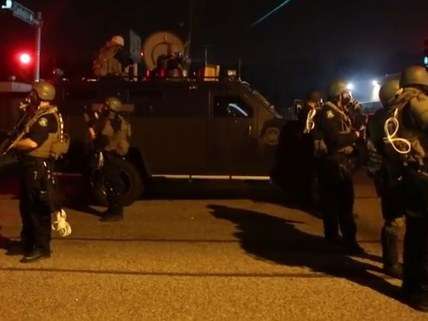Still Not Getting Along
Despite Rodney King's famous plea, the police and the public have not yet learned to get along.

On April 29, 1992, a California jury acquitted four white Los Angeles Police Department (LAPD) officers of the brutal beating of black motorist Rodney King, causing dismay among minority residents of the city. As the dismay turned to anger and the anger turned to violence, five days of rioting ensued; more than 55 people died, and CNN reported economic damage of over $1 billion.
Rick Henderson anticipated that frustration in "L.A., Lawless" (May 1991). Reflecting on the record of policing in Los Angeles, Henderson called the King beating "only slightly more disturbing than the official response of the law enforcement community." He noted that the LAPD had a history of targeting and "roughing up" blacks, including several famous athletes, and that Police Chief Daryl Gates remained in power despite overseeing not just King's abuse but a string of police acts that had cost the city $8 million in payouts the year before. "Suspected criminals, even 'ex-cons,' don't lose their due-process rights the instant police officers apprehend them," Henderson wrote.
Twenty-two years on, many of the same themes have driven residents of Ferguson, Missouri; New York City; Washington, D.C.; and other cities around the country back into the streets. Frustration over disparate racial treatment by police has bubbled over after two separate incidents in which grand juries declined to indict police officers responsible for the recent deaths of unarmed black men.
In Ferguson, where 18-year-old Michael Brown was shot multiple times by an officer who claims Brown tried to take his weapon, the protests became destructive, with local businesses looted and cars set aflame. As in Los Angeles in 1992, the National Guard was called in and authorities attempted to impose a curfew. But the stories of Ferguson and Staten Island, New York, where father-of-six Eric Garner died after police put him in a chokehold, differ from that of Los Angeles in one important respect: The officers in the first two cities will not face trial.
Rep. Hakeem Jeffries (D-N.Y.) called the failure to indict "an outrage" and "a blow to our democracy [that] should shock the conscience of every single American who cares about justice and fair play." Despite King's famous plea, the police and the public have not yet learned to get along.
This article originally appeared in print under the headline "Still Not Getting Along."


Show Comments (22)